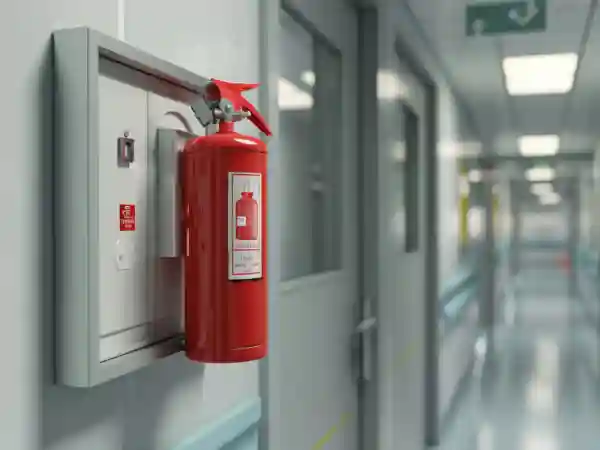
Hi, I’m Paul, a qualified electrician and full-time lecturer here at Learn Trade Skills. I’ve been working in the electrical industry since the early 2000s and teaching since 2010. Over the years, I’ve helped hundreds of students develop the skills needed to install fire detection and alarm systems safely and in accordance with British Standards.
In this guide, I want to give you a complete walkthrough of fire alarm installation courses available in the UK — who they’re for, what they teach, and most importantly, what these qualifications actually allow you to do in the real world. Whether you’re an electrician, a building services professional, or someone looking to upskill, I’ll explain everything in plain English — no fluff, no jargon.
Fire alarm systems save lives, but they only work when they’re designed, installed, and maintained properly. The industry has moved on from “chucking up a few smoke detectors”—there’s now detailed legislation, British Standards, and a growing expectation that installers are competent and certified.
That’s why I always say: don’t cut corners with training. Proper qualifications not only open the door to more work — they ensure you know what you’re doing, and why it matters.
We offer two key EAL Level 3 Awards, both accredited and respected across the UK fire safety industry. Here’s what they look like:
This is our flagship commercial fire alarm course. It’s ideal if you want to work on larger buildings like offices, schools, care homes, or warehouses.
This course focuses on residential fire systems, covering everything from new-build homes to HMOs. It’s shorter but still packed with knowledge.
Whether you’re on the commercial or domestic course, you’ll learn a solid mix of theory and hands-on practical skills. I make sure all our learners get stuck into real-world installations — it’s the best way to learn.
We also dive deep into design principles, which is where most people trip up. Designing a compliant system isn’t just about following rules — it’s about interpreting real-life layouts and understanding where risks lie.
This is the big question I get asked: “What can I do after this course?”
✅ Design compliant fire alarm systems (residential or commercial, depending on your course)
✅ Install systems in line with BS 5839 standards
✅ Test, commission, and hand over systems
✅ Maintain and service systems with confidence
✅ Support BAFE SP203 or similar registration (if working for or running an accredited business)
🛑 What it doesn’t do: You won’t be able to sign off final Building Control completion certificates unless you’re registered through a competent person scheme or an accredited business. But for the work itself — you’re good to go.
I’ve taught learners from all sorts of backgrounds. The most common include:
Once qualified, you can confidently take on roles like:
Some of our students go on to start their own fire alarm installation businesses. Others land contracts with housing associations or FM companies.
At Learn Trade Skills, we keep pricing transparent:
The fees cover all tuition, exams, materials, and certification.
It helps, especially for the commercial course. But if you’ve got a solid understanding of electrics and a background in building services or fire safety, you’ll be fine.
Yes — you can design, install, commission, and maintain systems. However, formal “certification” for Building Control usually needs to be done through an accredited business or registration scheme.
Not necessarily. If you work only in housing, the dwellings course will do. If you’re dealing with commercial or public buildings, go for the commercial course — or do both and cover all bases.
Massive. With updated fire safety legislation and building regulations, qualified installers are in high demand — especially in social housing, new builds, and HMOs.
Absolutely. EAL is a well-respected awarding body, and our courses meet the current competency expectations outlined by the fire industry and insurers.
I’ve been in this trade a long time, and there’s one thing I always remind students: competency is key. The days of guesswork are long gone. If you’re working on fire alarm systems, you need to know your stuff — because lives depend on it.
These courses are a fantastic step into the fire safety sector, whether you’re just starting or levelling up your skills. And as your tutor, I’ll make sure you leave confident, competent, and ready to hit the ground running.
See you in class!
Cheers
Paul has been a dedicated lecturer at Learn Trade Skills since 2022, bringing decades of expertise in both lecturing and the electrical industry to his students. With a rich background as an accomplished electrician, Paul combines practical experience with a deep passion for teaching, ensuring that his students not only grasp theoretical concepts but also gain the hands-on skills necessary for success in the field. Paul's commitment to education and his profession makes him a valued mentor and educator, continually inspiring the next generation of skilled tradespeople
“Lorem ipsum dolor sit amet, consectetur adipiscing elit. Ut pretium tristique purus nec consectetur. Nulla feugiat eget tellus aliquam scelerisque. Sed eget luctus enim, sed mattis enim. Lorem ipsum dolor sit amet, consectetur adipiscing elit. Ut pretium tristique purus nec consectetur. Nulla feugiat eget tellus aliquam scelerisque. Sed eget luctus enim, sed mattis enim.Nulla feugiat eget tellus aliquam scelerisque. Sed eget luctus enim, sed mattis enim. Lorem ipsum dolor sit amet, consectetur adipiscing elit. Ut pretium tristique purus nec consectetur. Nulla feugiat eget tellus aliquam scelerisque. Sed eget luctus enim, sed mattis enim.”
William Goss
Electrician course
11/11/2024